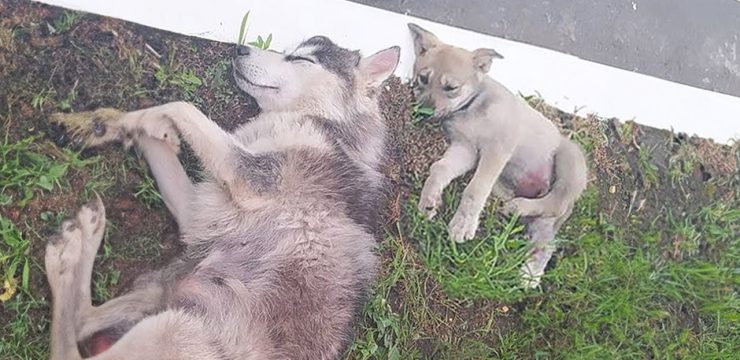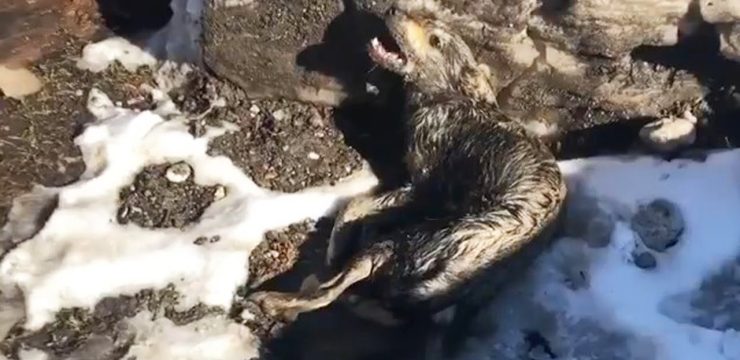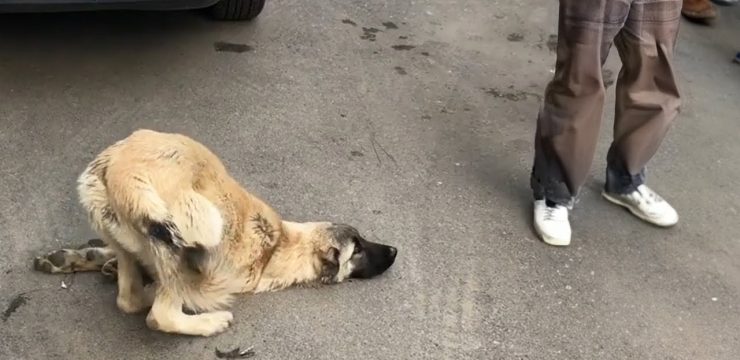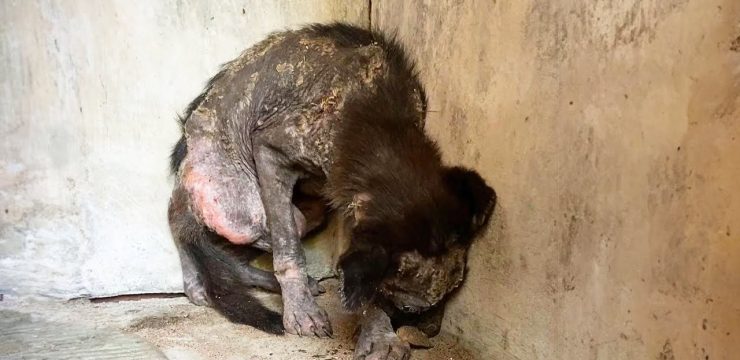Meet Gito—a tiny orangutan whose early days were marked by tragedy and unimaginable suffering. His story is one of pain, survival, and ultimately, hope. In 2015, the animal rights group International Animal Rescue found him in such a shocking state that they initially weren’t even sure if he was still alive. According to The Dodo, poachers had killed his mother, and Gito—still just a baby—was left alone in a small cardboard box under the searing sun. His condition was so dire that some mistook him for a mummified corpse. His frail body was nearly hairless, his skin was gray, cracked, and peeling from a painful case of sarcoptic mange. He was itchy, suffering, and alone.
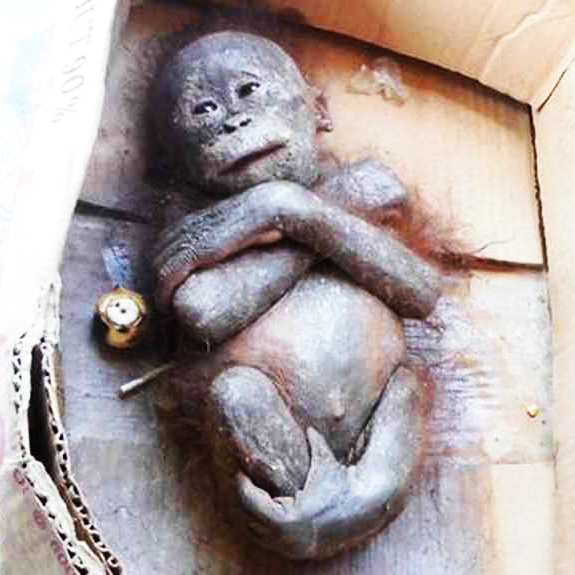
What makes Gito’s story even more heartbreaking is that he had once been sold for just \$30. At that point, he was only a few months old but looked much older due to the trauma and neglect he endured. “We thought he was dead at first,” International Animal Rescue shared on their website. “Gito’s arms were folded corpse-like across his body, and he looked almost mummified in his cardboard coffin. He had barely any hair, and his flaky skin told the tale of an infection that must have caused excruciating pain.”
The rescuers acted quickly. They gently picked up the helpless little orangutan and rushed him to the nearest veterinary clinic, driving as fast as they could. It took them nine long hours to get there. The fact that he survived such a journey—on top of everything else—showed just how strong and resilient Gito was. At the clinic, the veterinarians knew they had their work cut out for them. Gito needed intensive care to treat his infection and the effects of malnutrition and emotional trauma caused by being separated from his mother at such an early age.
Slowly but surely, Gito began to heal. Thanks to the incredible dedication of the animal welfare team, he made remarkable progress. Now, several years later, he’s unrecognizable compared to the sickly baby found in that box. At three years old, he’s thriving. His hair has grown back its vibrant orange hue, and his once-damaged skin is now healthy and smooth. He’s curious, full of life, and, best of all, surrounded by people who genuinely care for him.
Gito has since joined International Animal Rescue’s rehabilitation program. This program is designed to prepare rescued orangutans for life in the wild. Gito now spends his days in a large, wooded area with other orphaned orangutans who are also on the road to recovery. Together, they play, explore, and learn important survival skills—just as they would have with their mothers in the wild. This environment allows them to build strength, confidence, and the instincts needed to thrive once they are released into their natural habitat.
For orangutans in the wild, the first six to seven years of life are spent closely bonding with their mothers. During this time, they learn critical skills like how to forage for food, how to climb safely, and how to navigate their environment. Gito, like many other rescued orangutans, missed out on this natural upbringing. But the rehabilitation program acts as a bridge, giving him and his peers the chance to develop those same instincts in a safe and supportive setting.
Today, Gito is known for his playful personality and expressive face. His caretakers often share photos of him climbing trees, making silly faces, and bonding with his best friend Asoka. Their connection is a testament to the importance of companionship, even in recovery. Gito loves fruit and all kinds of snacks, but what he truly thrives on is attention, love, and the freedom to explore the world around him.
While Gito’s future looks bright, his journey is also a powerful reminder of the ongoing crisis facing orangutans in the wild. Lis Key, the communications manager for the rescue center, explained to The Dodo that one of the main threats to these animals is deforestation—especially due to palm oil production. “Animals are suffering and dying because of the systematic destruction of the rainforest,” she said. Every tree cut down pushes orangutans closer to extinction, and every mother lost to poaching leaves another orphaned baby like Gito struggling to survive.
The work done by organizations like International Animal Rescue is vital. Without their intervention, animals like Gito would have no chance. But their efforts rely on ongoing support from donors and advocates who believe in protecting wildlife. Stories like Gito’s are heart-wrenching, but they’re also hopeful. They remind us that with enough compassion, dedication, and care, even the most broken lives can be restored.
There’s something profoundly emotional about seeing a once-hopeless creature find joy again. Gito’s story is more than just a tale of rescue—it’s a symbol of resilience. He represents every orphaned animal waiting for a second chance, and every act of kindness that makes that chance possible. He may have started his life in a cardboard box, but today, he swings through the trees, free to grow, learn, and love.
Let his journey inspire us all. Whether it’s through donations, education, or spreading awareness, we each have a role to play in protecting the most vulnerable. Gito made it because someone cared enough to act. Let’s continue to be that someone—for Gito, and for all the others still waiting.
